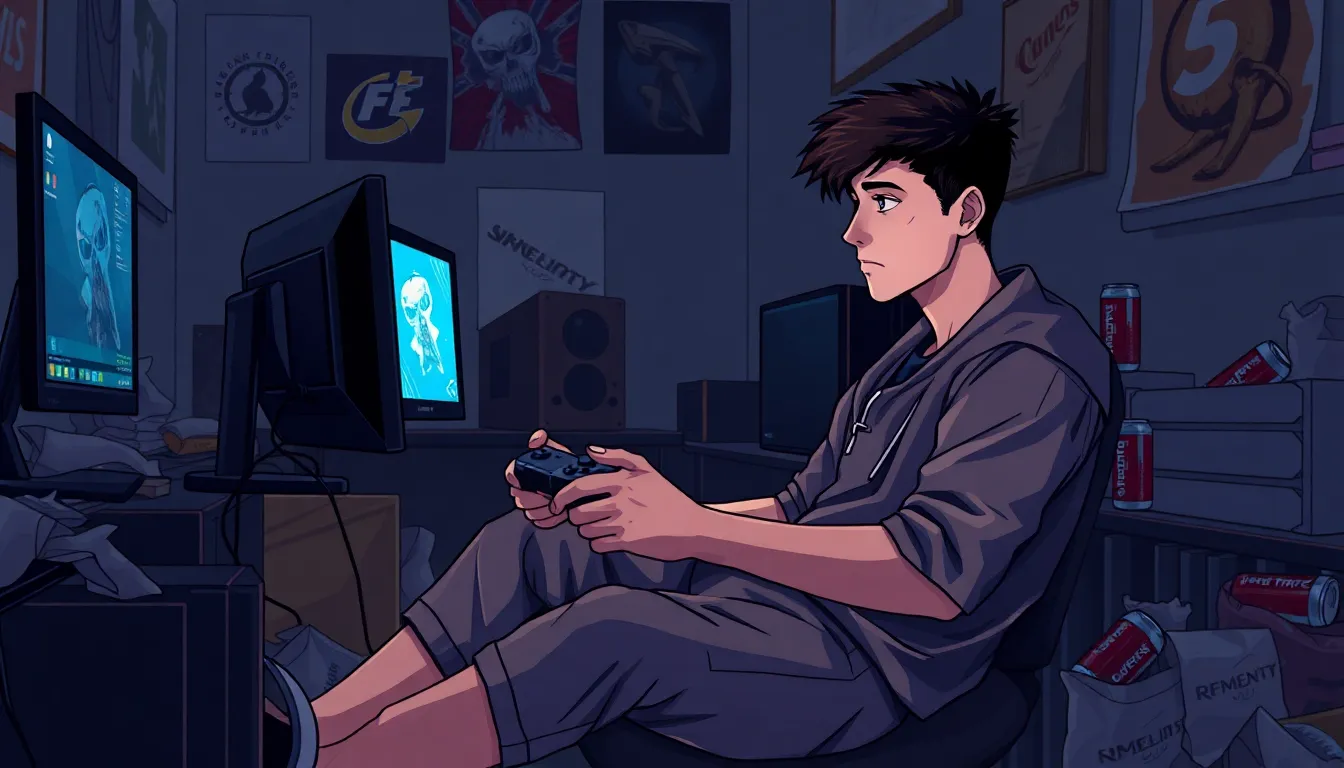In a world where pixels reign supreme and virtual conquests tempt the mind, it’s easy to get lost in the addictive allure of game overdertoza. What starts as a fun escape can quickly spiral into a time-sucking vortex, leaving players wondering where the hours went and why their laundry’s still in the basket. If you’ve found yourself in a love-hate relationship with your gaming console, you’re not alone.
Breaking free from this digital spell doesn’t have to feel like a boss battle. With a dash of humor and a sprinkle of strategy, it’s possible to reclaim your life without sacrificing your passion for gaming. Ready to hit the reset button? Here’s a guide that’ll help players level up their lives and leave the game overdertoza addiction behind for good.
Table of Contents
Togglehow to get over from game overdertoza addiction
Game Overdertoza addiction refers to excessive engagement with the game, causing neglect in various areas of life. This addiction affects players’ ability to manage daily responsibilities and enjoy healthy relationships.
What Is Game Overdertoza Addiction?
Game Overdertoza addiction manifests when players prioritize the game over their personal and social lives. Individuals often lose track of time while playing, leading to physical and emotional consequences. It can interfere with work, academic performance, and overall well-being. Players might find it difficult to stop playing despite experiencing negative effects, showcasing a compulsive need for the game.
Signs and Symptoms of Addiction
Common signs of Game Overdertoza addiction include neglecting responsibilities and withdrawing from social interactions. Emotional symptoms may surface, such as irritability when not gaming. Players may experience sleep disturbances due to late-night sessions or lose interest in other activities. Frequent cravings to play even during important commitments also indicate a deepening addiction. Recognizing these symptoms helps individuals acknowledge their gaming habits and seek change.
The Impact of Game Overdertoza Addiction

Game Overdertoza addiction affects both mental health and social relationships significantly. Individuals often face challenges that extend beyond gameplay, influencing various aspects of their lives.
Mental Health Effects
Anxiety frequently manifests as players struggle to detach from the game. Depression may also develop due to prolonged isolation and neglect of self-care. Players often experience heightened irritability when they cannot engage with the game, which can intensify emotional distress. Stress levels frequently rise as responsibilities pile up, fueled by constant gaming. Cognitive functions may decline as focus shifts primarily to gameplay, detracting from critical thinking skills. It’s essential to recognize these effects early, allowing for timely intervention and support.
Social Consequences
Relationships with family and friends commonly suffer due to excessive gaming. Social isolation often occurs as players prioritize gaming over in-person interactions. Communication breakdowns become evident when individuals withdraw from social gatherings and conversations. Trust issues may arise, leading to conflicts with loved ones who feel neglected. Friendships might also fade when gamers prioritize virtual achievements over real-life connections. These consequences disrupt social dynamics, creating a cycle that reinforces addictive behavior.
Steps to Overcome Game Overdertoza Addiction
Acknowledging the problem is a crucial first step in overcoming Game Overdertoza addiction. Gamers often deny the extent of their gaming habits or ignore the negative effects. Recognizing signs, such as irritability when not playing or neglecting responsibilities, helps in grasping the need for change. By understanding that gaming impacts relationships and mental health, individuals can motivate themselves to seek improvement.
Setting clear goals provides direction and focus during the recovery process. Specific targets, like limiting gaming hours each day or replacing screen time with productive activities, ensure accountability. Each goal should be realistic and measurable to facilitate steady progress. Gamers might benefit from tracking their gaming habits in a journal. Reflecting on daily gaming time encourages awareness and highlights areas for improvement.
Seeking support from loved ones creates a strong foundation for overcoming addiction. Conversations about struggles with gaming can foster understanding and empathy. Friends and family often provide motivation and encouragement, making it easier to adhere to goals. Joining support groups or communities also unlocks shared experiences, helping individuals realize they’re not alone. Open discussions enhance connections and strengthen commitment to recovery.
Effective Strategies for Recovery
Effective strategies assist individuals in overcoming Game Overdertoza addiction. Implementing structured methods can foster a healthier relationship with gaming.
Establish a Healthy Routine
Creating a balanced daily schedule helps manage gaming time. Include activities like exercise, meal preparation, and social interactions. Consistent wake-up and sleep times promote better well-being and reduce cravings. Incorporating breaks during gaming sessions maintains mental clarity and prevents fatigue. Setting specific hours for gaming reinforces control over habits. Individuals can track progress to see improvements in overall life quality, encouraging continued commitment.
Find Alternative Activities
Finding enjoyable substitutes for gaming can significantly aid recovery. Engaging in outdoor activities, such as hiking or cycling, provides fresh air and physical activity. Pursuing hobbies like painting, writing, or learning a musical instrument offers creative outlets. Connecting with friends and family through shared experiences strengthens social bonds. Exploring new interests may lead to discovering passions that shift focus away from gaming. Establishing block schedules for these new activities creates a structured approach, enhancing engagement.
Limit Exposure to Triggers
Limiting exposure to gaming triggers plays a crucial role in recovery. Recognizing specific times or locations that spark cravings helps in managing triggers effectively. Reducing access to gaming platforms during high-risk periods strengthens commitment to recovery goals. Avoiding gaming-related content on social media prevents temptation. Additionally, removing notifications from gaming apps fosters a less intrusive environment. Establishing boundaries within social circles, like encouraging friends to join alternative activities, promotes group support for healthier habits.
Wind-up
Overcoming Game Overdertoza addiction is entirely achievable with the right mindset and strategies. By recognizing the impact of excessive gaming on mental health and relationships, individuals can take proactive steps toward recovery. Setting realistic gaming limits and engaging in alternative activities fosters a healthier lifestyle.
Support from friends and family plays a crucial role in this journey. Building a routine that prioritizes physical well-being and social interactions can significantly reduce gaming’s hold. Ultimately, the path to balance involves commitment and a willingness to change. Embracing these steps can lead to a more fulfilling life beyond the screen.





